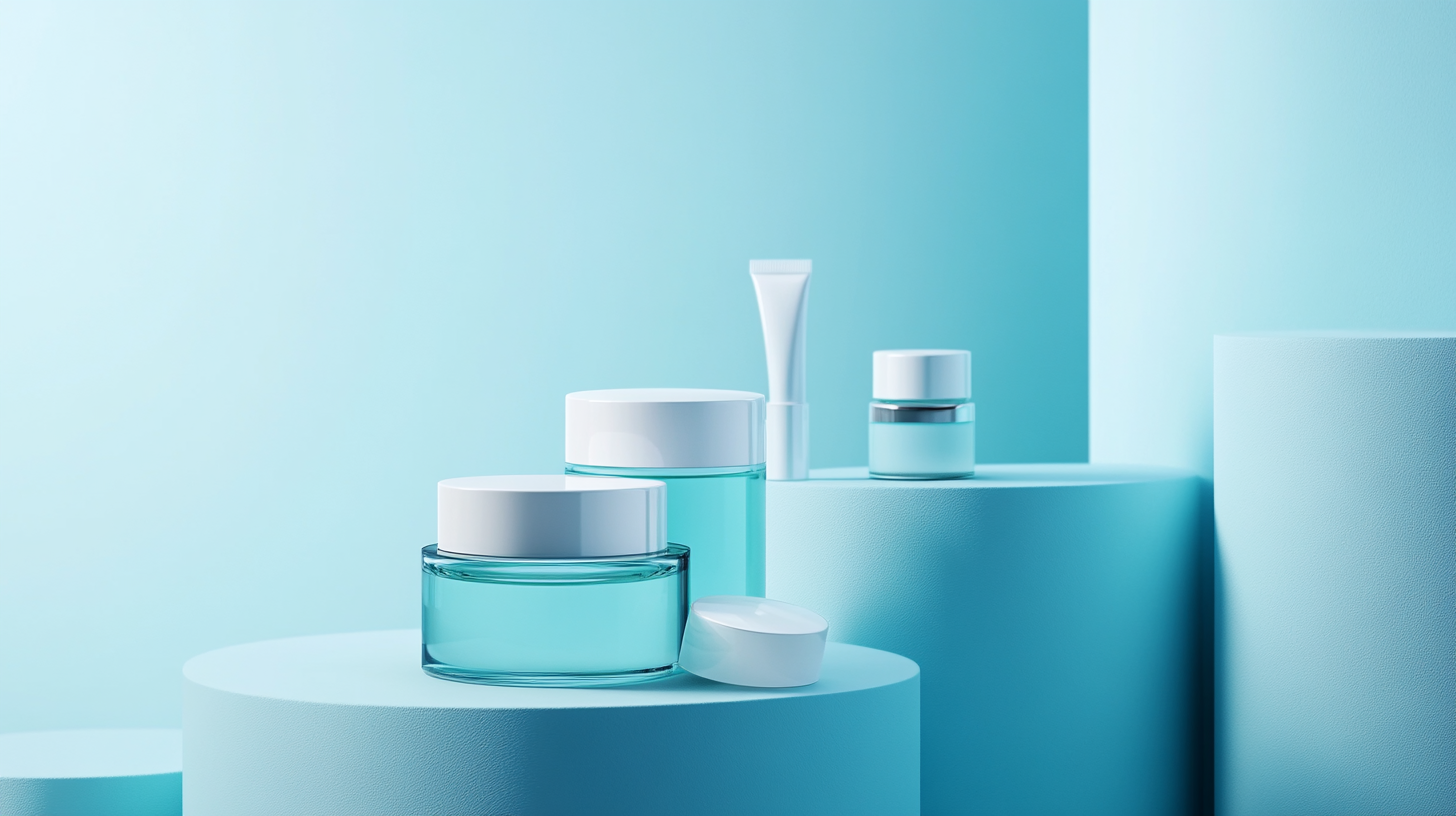7 Essential Basic Skin Care Products Every Global Buyer Should Know
In today's fast-paced world, the significance of a well-rounded skincare routine cannot be overstated. For global buyers navigating an overwhelming array of products, understanding the essential basic skin care products is crucial. These products not only cater to diverse skin types and conditions but also form the foundation of effective skin management. As consumers become more informed about skincare, it's imperative to recognize which basics should be staples in any regimen, ensuring healthy and glowing skin.
The beauty industry is constantly evolving, with new trends and innovations emerging frequently. Yet, a solid lineup of basic skin care products remains timeless and indispensable. This blog will delve into seven essential items that every global buyer should familiarize themselves with, providing insights into their benefits and usage. From cleansers to moisturizers, these basic products offer the groundwork for achieving radiant skin, regardless of your location or climate. Join us as we explore these must-have items that every skincare enthusiast should include in their routine.

Essential Ingredients in Cleansers: What Global Buyers Should Look For
When considering essential skincare products, cleansers stand out as a foundational step in any routine. For global buyers, understanding the key ingredients in cleansers is crucial in making informed decisions that cater to diverse skin types and concerns. The type of cleanser chosen can significantly impact skin health, making it vital to know what to look for. First and foremost, effective cleansers should feature gentle surfactants that cleanse without stripping the skin of its natural oils. Look for terms like “sulfate-free” and “non-foaming” when selecting a product. Ingredients such as glycerin and aloe vera are also beneficial, as they help maintain hydration levels while removing impurities. Additionally, botanicals like chamomile or green tea extracts can provide soothing properties, making them ideal for sensitive skin. Moreover, exfoliating ingredients like alpha-hydroxy acids (AHAs) or beta-hydroxy acids (BHAs) can enhance a cleanser's efficacy by promoting cell turnover and preventing clogged pores. However, global buyers should consider their specific skin types when integrating exfoliating cleansers into their routine. For instance, while AHAs are excellent for dry skin, BHAs may be more suitable for oily or acne-prone complexions. By paying attention to these essential ingredients, buyers can select cleansers that not only clean but also support overall skin health and vitality.

The Role of Moisturizers in Skin Health: Key Facts from Dermatological Studies
Moisturizers play a pivotal role in maintaining skin health, as highlighted by dermatological studies. The skin is not just an outer layer; it's the body's largest organ, necessitating proper care and nourishment. A well-formulated moisturizer can enhance the skin's barrier function, hydrate effectively, and support a healthy microbiome. This is particularly crucial for individuals with conditions like atopic dermatitis, where a strong skin barrier is essential for managing symptoms and promoting overall skin health.
When selecting a moisturizer, it’s important to consider your skin type. According to experts, personalized skincare is key. Different skin types require different formulations; for instance, those with oily skin may benefit from lightweight, oil-free moisturizers, while drier skin types often need richer, emollient creams. Additionally, incorporating SPF into your moisturizer can serve a dual purpose—hydrating your skin while offering protection against harmful UV rays. This protective aspect is critical for preventing premature aging and maintaining the skin’s integrity over time.
Recent explorations of the best moisturizers have revealed that tinted moisturizers are gaining popularity due to their multifunctional capabilities. These products not only hydrate but also provide a subtle color correction that enhances the complexion. As skincare continues to evolve, understanding the importance of moisturizers will empower global buyers to make informed choices that cater to their individual skin needs.

Exploring the Benefits of Exfoliators: Industry Insights on Skin Renewal
Exfoliation is a fundamental step in any skincare regimen, playing a crucial role in skin renewal. Industry reports indicate that the global exfoliating agent market is projected to reach $9.8 billion by 2025, reflecting a growing recognition of their benefits among consumers. Exfoliators work by removing dead skin cells, promoting cell turnover, and encouraging healthy skin growth. This process not only enhances skin texture but also improves the absorption of other skincare products, allowing for a more effective overall routine.
Among the various types of exfoliators, chemical exfoliants, such as alpha-hydroxy acids (AHAs) and beta-hydroxy acids (BHAs), have gained significant traction. According to a 2022 study published in the Journal of Cosmetic Dermatology, AHAs are particularly effective for sun-damaged skin, as they can reduce the appearance of fine lines and pigmentation by up to 30%. Meanwhile, BHAs are favored for their ability to penetrate oily skin and clear out clogged pores, making them an essential tool for acne-prone individuals.
Furthermore, the rise of clean beauty has led to an increased demand for natural exfoliants, such as fruit enzymes and clay masks. As consumer awareness grows, brands are focusing on transparency of ingredients and eco-friendly formulations. The National Retail Federation reported that 70% of consumers are now seeking out products with sustainable packaging and naturally derived ingredients. This shift highlights not only the benefits of exfoliation but also the importance of mindful choices for both skin health and environmental impact.

Sunscreen's Crucial Role: Understanding SPF Ratings and Consumer Awareness
Sunscreen plays a pivotal role in any effective skin care routine, serving as the first line of defense against harmful ultraviolet (UV) radiation. Recent studies indicate that over 90% of skin aging is attributed to sun exposure, making it critical for consumers to incorporate sunscreen into their daily regimen. The American Academy of Dermatology emphasizes using a broad-spectrum sunscreen with an SPF of 30 or higher to ensure adequate protection. Interestingly, research shows that only about 30% of people reapply their sunscreen as recommended, which significantly diminishes its effectiveness throughout the day.
Understanding SPF ratings is essential for consumers to make informed choices about their skin protection. SPF, or Sun Protection Factor, measures the amount of UV radiation required to cause sunburn on protected skin compared to unprotected skin. For instance, SPF 30 blocks approximately 97% of UVB rays, while SPF 50 blocks about 98%. However, many consumers mistakenly believe that higher SPF provides significantly better protection. According to a survey conducted by the Skin Cancer Foundation, nearly 70% of participants do not fully understand what SPF ratings mean, highlighting a gap in consumer awareness.
Moreover, the increasing awareness of skin health has driven the global sunscreen market, which was valued at approximately $10.6 billion in 2020 and is forecasted to grow by 4.5% annually. This growth signifies a burgeoning demand for effective sunscreens and an opportunity for brands to educate consumers about the importance of proper application and the significance of SPF ratings. As more people recognize the role of sunscreen in preserving skin health and preventing skin cancers, the conversation around consumer education and product efficacy becomes ever more crucial.
The Rise of Natural and Organic Ingredients: Trends in Global Skin Care Preferences
The global beauty industry is witnessing a significant shift towards natural and organic skincare products, reflecting a growing consumer preference for health-conscious options. As the market for organic skincare is projected to grow at an impressive CAGR of approximately 9.33% from 2023 to 2033, brands that prioritize natural ingredients are at the forefront of this movement. The increase in health awareness, particularly in the wake of the pandemic, has made consumers more discerning about the products they choose, often opting for those free from harmful chemicals.
One notable segment of this trend is the rise of jasmine essential oil, which is gaining traction not only for its aromatic properties but also for its beneficial effects on the skin. The global market for jasmine essential oil is evolving, with a focus on diverse end-users such as home consumers and healthcare professionals. Distribution channels are also expanding, with online retail becoming a popular platform for purchasing these organic products. The emphasis on organic jasmine oil aligns with the growing demand for multifunctional skincare that goes beyond basic cleansing and moisturizing, appealing particularly to younger generations who are increasingly knowledgeable about skincare.
As brands innovate to meet consumer expectations, the idea of skincare products that also serve as effective makeup removers is gaining popularity. This concept resonates well with the modern consumer, particularly millennials and Gen Z, who seek both efficacy and simplicity in their beauty routines. The convergence of skincare and makeup removal signifies a crucial trend in an industry that values holistic and health-oriented approaches, further solidifying the ascent of natural and organic ingredients in the global skincare market.

